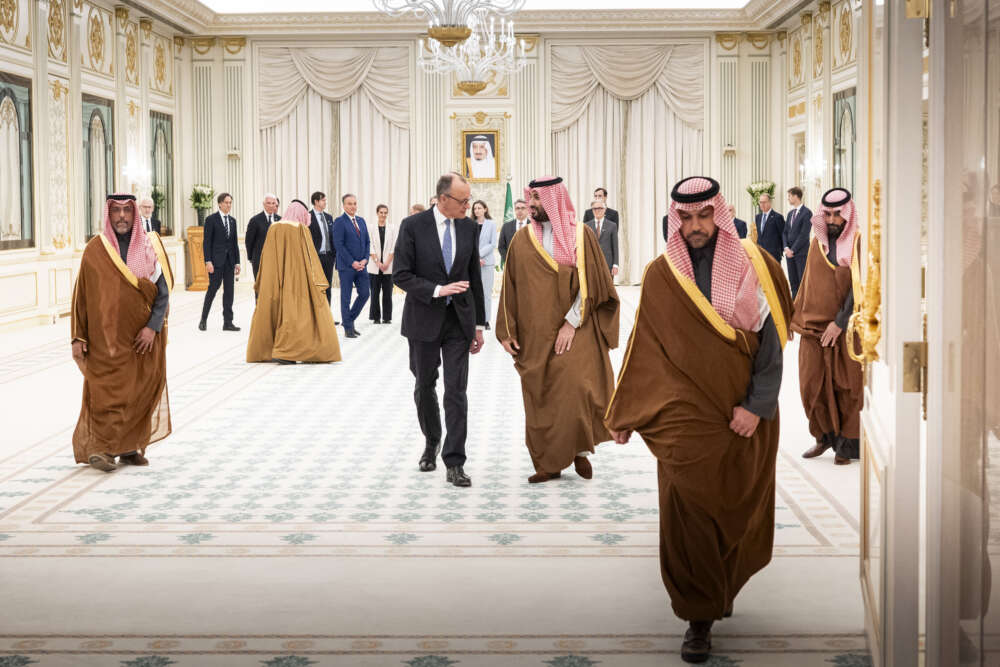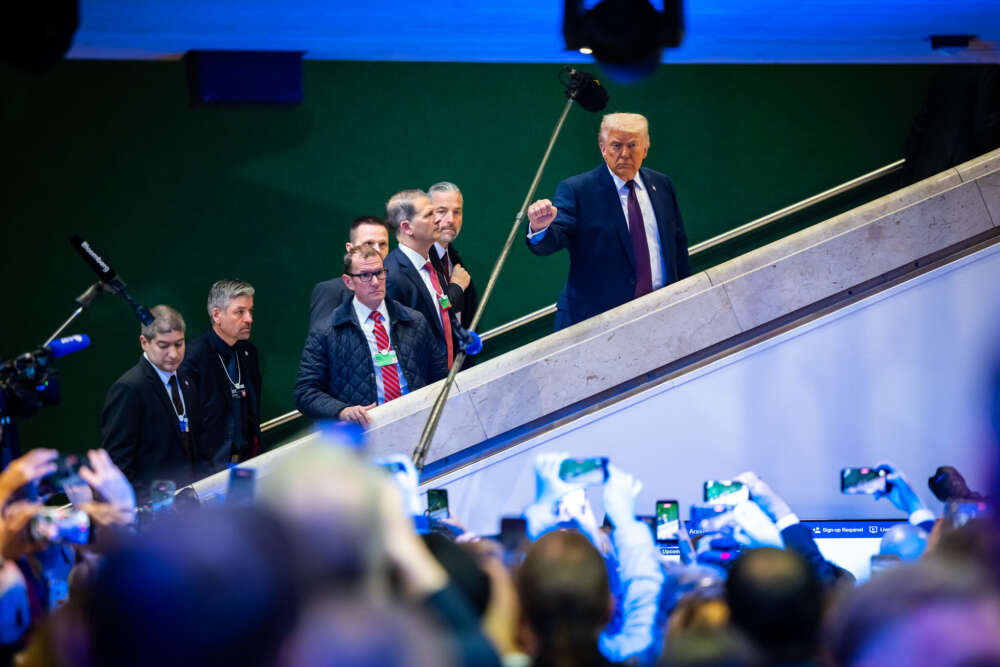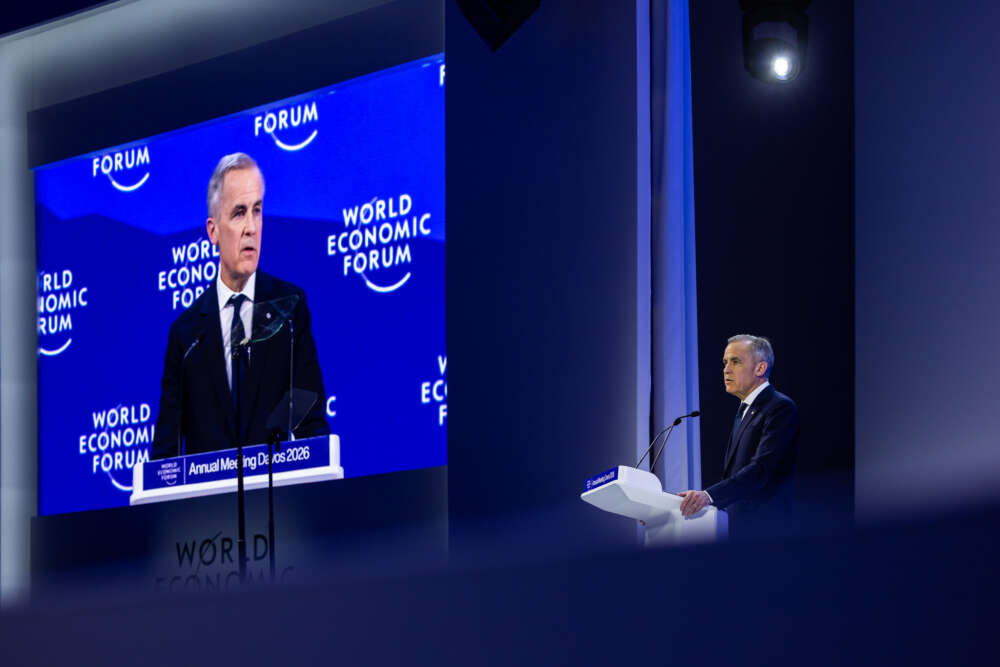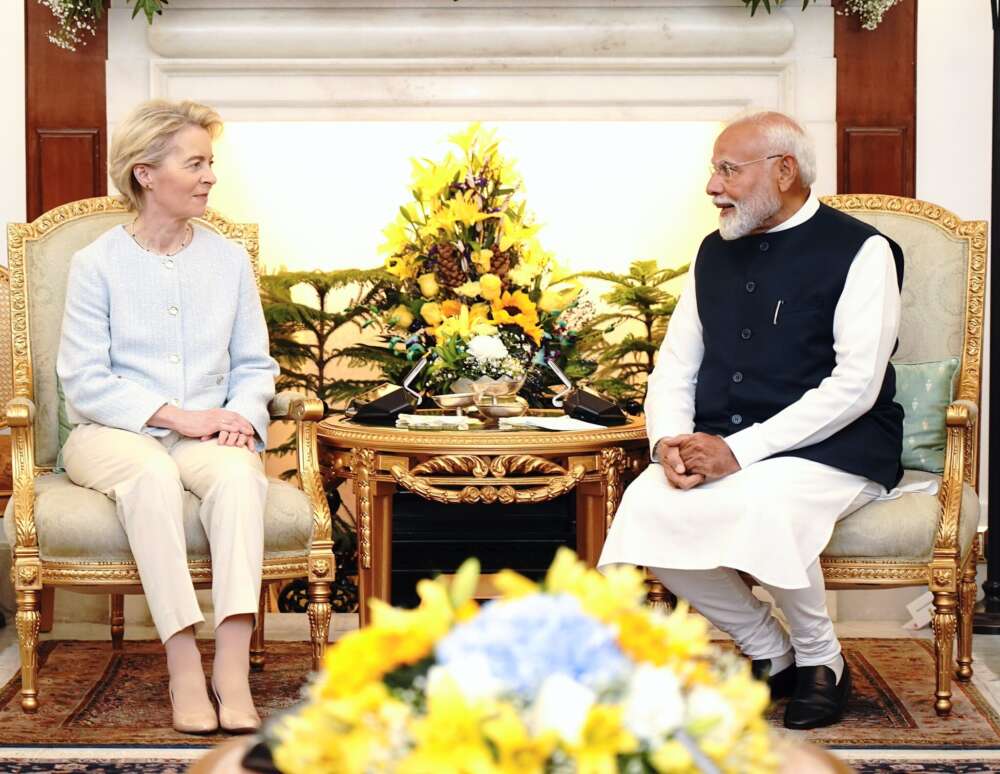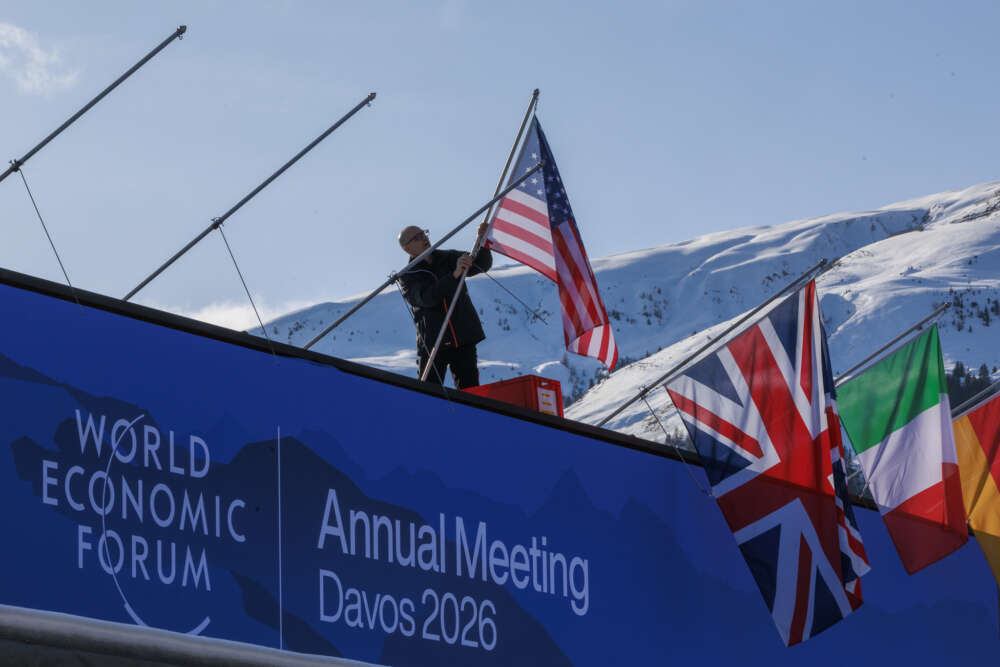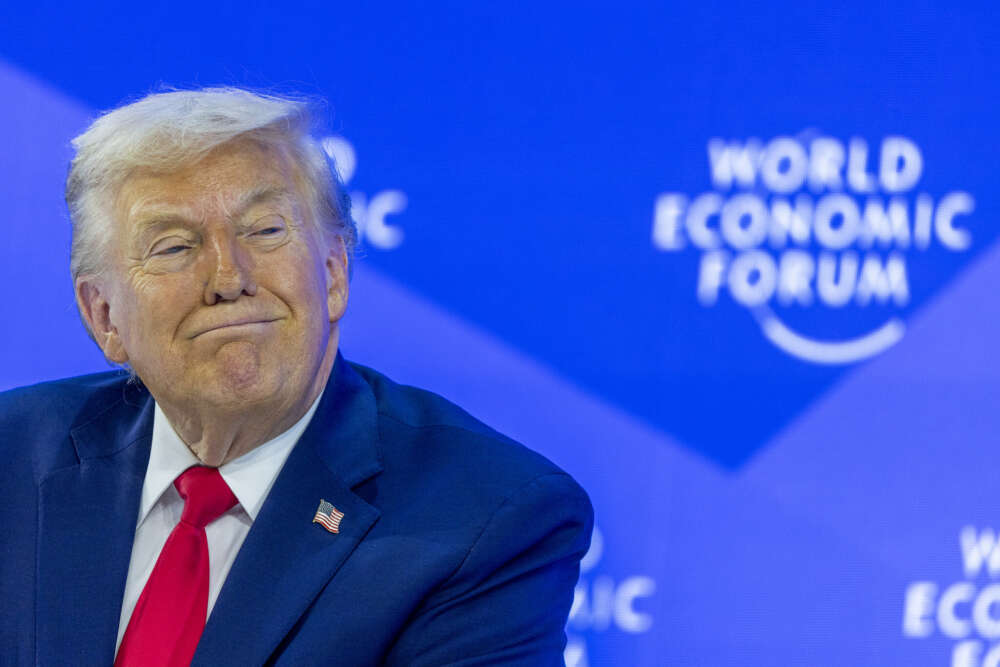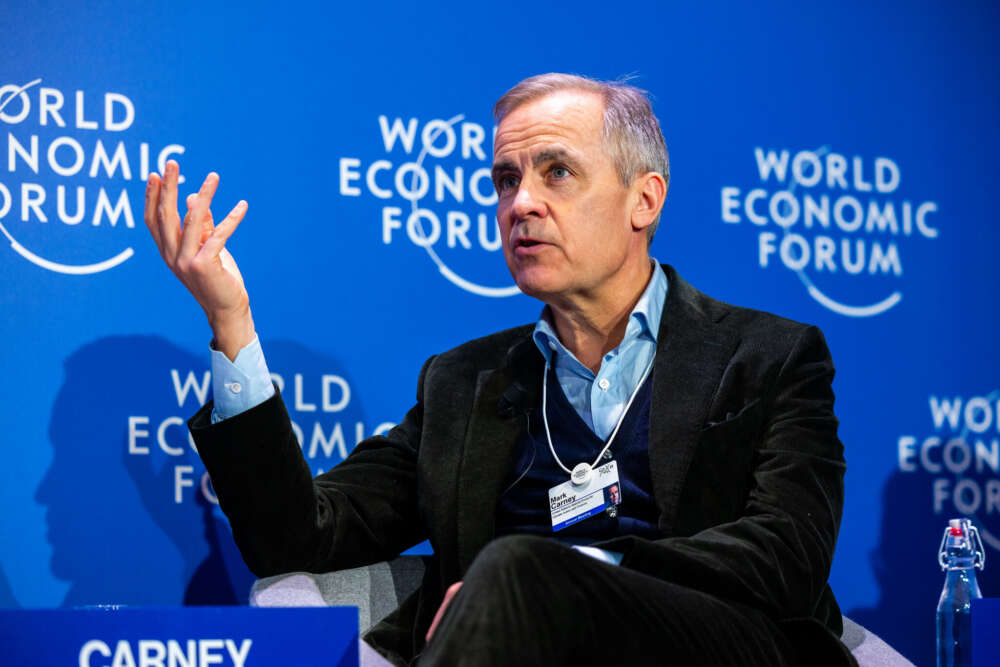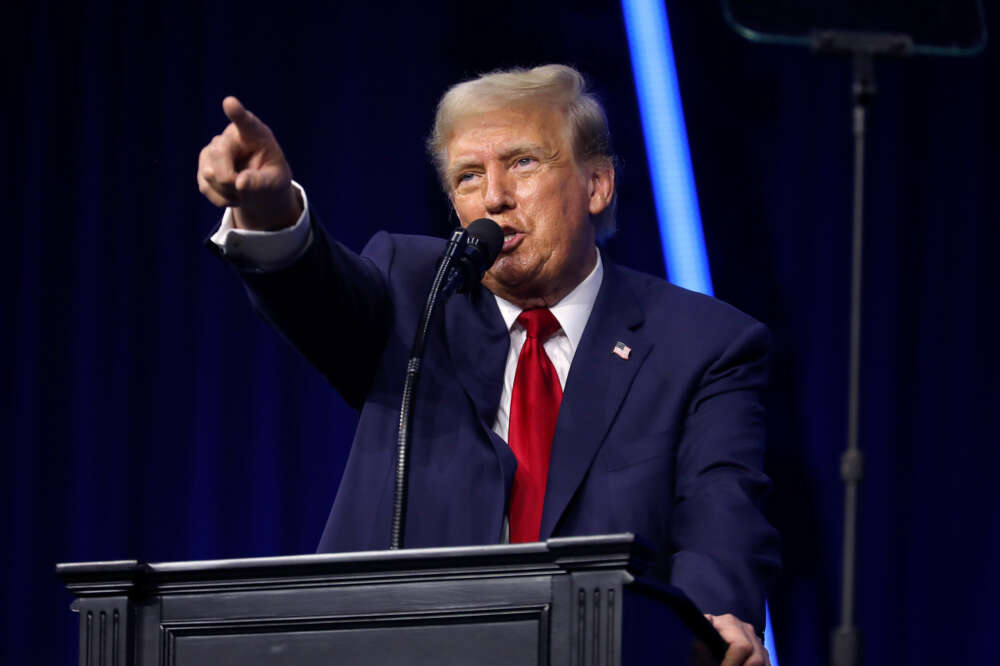Olaf Scholz Is Coming to America on a Salvage Mission
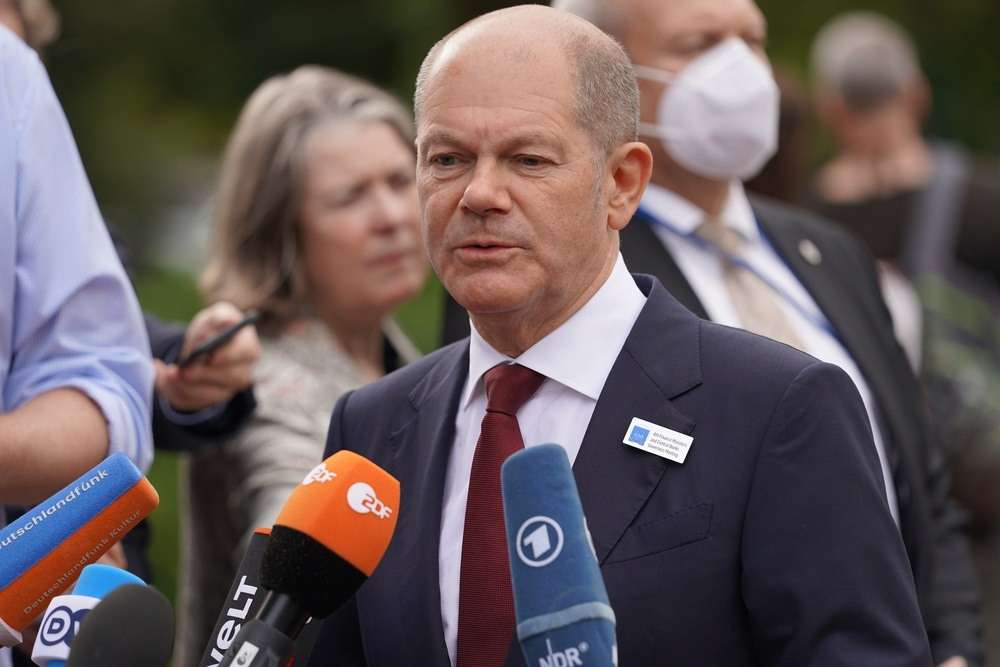
Standing next to then-German Chancellor Angela Merkel last June, U.S. Secretary of State Antony Blinken declared: “I think it’s fair to say that the United States has no better partner, no better friend in the world than Germany.” When Merkel’s successor Olaf Scholz meets U.S. President Joe Biden in Washington on Monday, these words will sound like a memory from a distant past.
In recent months, Germany’s reputation has declined precipitously given what many decry as Berlin’s wobbly stance vis-à-vis both the Kremlin and Beijing. Last week, Emily Haber, Germany’s ambassador to the United States, sent a cable to Berlin warning that many in the United States see Germany as an “unreliable partner.” Republicans in Congress, Haber telegraphed, see Germany as “in bed with Putin” warning of “immense” damage to Germany’s reputation. Many in the Biden administration share misgivings about Berlin’s stance, although they put on a brave face publicly. Germany’s Eastern European partners are more direct. Last week, Latvian Defense Minister Artis Pabriks called Germany’s stance on Russia and China “immoral and hypocritical.”
Scholz’s central mission for his Washington visit has to be restoring German credibility. As a trans-Atlantic-minded centrist, he is well placed to do so with a clear message on Russia sanctions, contributing more to NATO defense capabilities, and a joint agenda on China.
This is not how Scholz had envisaged his first U.S. trip as chancellor. When he was in Washington last October as finance minister, he celebrated the agreement on a global corporate minimum tax he helped to broker with his U.S. counterpart Janet Yellen. It’s these sorts of issues that are unrelated to hard security that Scholz is most passionate about. He would have preferred to focus his Washington trip on his priorities for Germany’s G‑7 presidency under the slogan “progress toward an equitable world,” including a “climate club” of pioneering states. This is the global flip side of Scholz’s domestic agenda for a modernization decade that he thinks Germany badly needs after too much stasis under Merkel. Scholz’s closest advisors see him as “Angela Merkel with a plan.” Unlike Merkel, who contented herself with diligently dealing with the many crises coming her way, Scholz came to office determined to pursue a long-term agenda of an equitable digital and post-carbon transformation not just of Germany’s industry but also of politics and society in a stronger Europe.
But international security was never near the top of his agenda. That explains why Scholz took a hands-off approach when the crisis with Russia hit right during the first weeks of his chancellorship. He failed to communicate a clear course vis-à-vis Russia’s threats against Ukraine. For a long time it was unclear what actions Germany was willing to support to deter the Kremlin from staging another major invasion. Scholz did talk about the “high price” Russian leader Vladimir Putin would pay but sowed doubts about his determination by continuing to label the highly contested Nord Stream 2 pipeline between Russia and Germany a private business project. The fact that German Defense Minister Christine Lambrecht tried to take Nord Stream2 sanctions off the table the same day the Biden administration asked U.S. senators to vote to waive sanctions against Germany over this very pipeline added to the fury in Washington. Scholz also failed to reign in the motley crew of pro-Kremlin voices from within his own Social Democratic Party (SPD) and the opposition Christian Democratic Union/Christian Social Union, including Bavarian Prime Minister Markus Söder, a former chancellor hopeful who cautioned against “ever new threats and ever tougher sanctions” against Russia. That Germany cautioned against using the SWIFT financial communications network as part of the sanctions package and refused to send weapons to Ukraine or even authorize the transfer of German-made weapons from Estonia only added to the impression of an unreliable ally.
It was only in mid-January that Scholz committed to the formula of “all options being on the table” in terms of sanctions. But the fact that, apart from weapons deliveries, Germany has fully signed on to the U.S.-led deterrence-through-sanctions agenda while investing in diplomatic channels for crisis management has mostly not registered with Germany’s allies. Scholz and German Foreign Minister Annalena Baerbock use the slogan “dialogue and toughness” for their Russia policy. But the impression is, as Russia expert Julia Friedrich has put it, that Berlin “mostly relies on the toughness of others while it sees itself as the bridge for dialogue.”
That is why as a first order of business in Washington Scholz needs to loudly and clearly reiterate the message that, in terms of sanctions on Russia, all options are on the table — including Nord Stream 2. That will help to correct the perception that Germany is unwilling to support any sanctions that mean significant economic costs for Germany. If Scholz is clear on this, he can also more forcefully make the case that he wants the burden of sanctions vis-à-vis Russia to be shared fairly among allies (and remind the United States that it is one of the biggest importers of Russian crude). Scholz should also use the Washington visit to distance himself clearly from former SPD Chancellor Gerhard Schröder whose work on the payroll of the Russian energy firms Gazprom and Rosneft and whose pro-Kremlin advocacy (most recently waffling about Ukrainian “saber-rattling”) have become an increasingly heavy reputational millstone around Scholz’s, and by extension Germany’s, neck.
Even more importantly, Scholz needs to signal that while Germany will not supply weapons to Ukraine, it will contribute additional resources to the defense of NATO allies that feel threatened by Russia. The chancellor should make it crystal clear during his trip to the United States that he sees deterrence by NATO of an aggressive Russia as a task to which Germany is willing to make additional contributions. This is a recognition of the fact that the current crisis with Russia is about a lot more than Ukraine. It is about the key elements of European security order, as the Kremlin’s demands in the draft treaty language make it clear.
Scholz can make the case for additional investments in defense and deterrence as part of his call for a new European Ostpolitik together with Germany’s key European partners. Scholz’s appeal echoes the policy of detente pursued by the first SPD chancellor and Nobel Prize winner Willy Brandt in the late 1960s. Scholz can build on an aspect of Brandt’s approach that has largely gone forgotten: that detente was built on a firm commitment to deterrence. In 1973, Brandt argued that “the freedom to work on detente does not come for free.” He stressed the need to preserve “presence and combat strength” of the German armed forces and called the defense budget “not just a necessity” but also a “serving our work for peace.” As a consequence, under Brandt’s leadership from 1969 – 1974 the German defense budget saw the largest increases to date. It’s this legacy of Ostpolitik that Scholz can invoke to justify Germany investing more in European defense.
Investing more resources in defense and deterrence is not popular domestically in Germany, so Scholz will have to spend political capital to convince his own party and the German public. The current level of aggression displayed by the Kremlin is a good window of opportunity to make the case to the German public that does not quite see the need for investing in deterrence in order to negotiate with Moscow on arms control from a position of strength. While Scholz would very much prefer to spend his political capital on other domestic issues, he has no choice but to also invest more in terms of defense if his key goal of a stronger Europe is to have a fighting chance. If key European partners feel insecure and left alone by Berlin, projecting European political unity on the global stage will remain a pipe dream. Berlin can no longer rely on Washington to take care of increased needs for investing in European security. That Biden this week decided to bolster the U.S. presence in Europe by 2,000 troops should not blind Germans to the fact that the United States wants and needs to decrease its presence in Europe in the medium term to focus on countering China in the Indo-Pacific. Scholz knows that even if Trumpism does not stage a comeback in 2024, we will likely never see another U.S. administration with as much goodwill toward Europe and as much willingness to invest in a European crisis. That is why Scholz should make it clear Germany will go ahead with this enhanced contribution even if we get lucky and Putin decides to not pursue another invasion of Ukraine for now.
In his meeting with Biden, Scholz should also present a substantive agenda on possible areas for cooperation on China policy. In his state of the union speech outlining his governing program last December, Scholz talked about the need to adjust German and European policy “to the China we find in the real world,” signaling an end to a policy that fed on the illusion of a Beijing continuing to open up its system. The chancellor called on Germany and Europe to “invest in our own political, economic, and technological strength” and to use the strength of the European common market to “fight for fair competition for our companies and to compete globally” with China. Strikingly, he added: “Our most important partner in this is the United States.” That is a stronger commitment to trans-Atlantic cooperation on China than you ever heard from Angela Merkel.
Scholz can now fill this idea with life by proposing concrete cooperation in areas such as semiconductors, rare earths, global infrastructure (building on the European Union’s recent Global Gateway initiative), and green technology. Scholz should seek cooperation with the United States on countering China’s economic coercion (most recently attacking key principles of the European common market by going after Lithuania and German companies producing there). In doing so, he can remind his U.S. counterparts that Washington needs to stop using sanctions against its democratic allies if it wants cooperation on this front. At the same time, Scholz should clearly signal that Berlin is committed to defending the peaceful status quo in the Taiwan Strait. Germany can make an important contribution on the political, economic, and technological front to nonmilitary deterrence of Beijing moving on Taiwan, the one hot spot that could trigger a great-power war with catastrophic consequences not just for global stability but also for German and European prosperity.
The trip to Washington needs to be Olaf Scholz’s overdue coming out on international security. Only if the chancellor invests forcefully in managing international crises and restores Germany as a credible partner with key allies will he have the breathing space to pursue his ambitious and much needed domestic modernization agenda.
This commentary was originally published by Foreign Policy on February 4, 2022.
